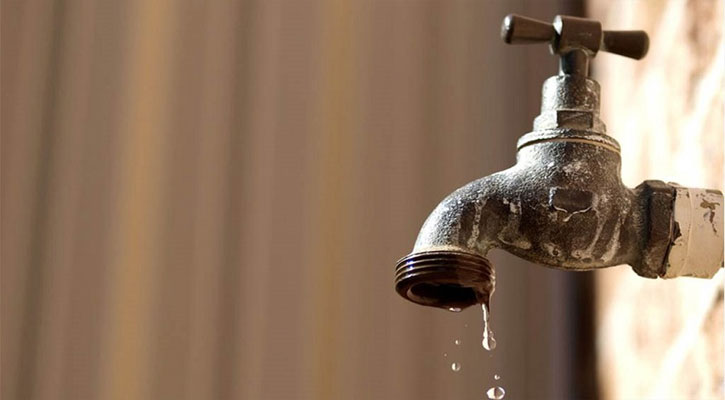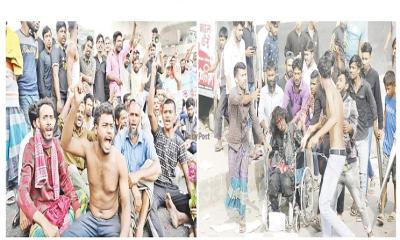- Water mixed with dirt and stench in many areas
- 260M Ltr demands per day, capacity has 290M
- Allegation rises for paying extra money
One has to wash the dishes with a bucket of water, and then the rice has to be put again with that. She did not take bath for three days. Water is scarce at other times of the year, but we now understand how dire the situation can be if there is no water during the month of Ramadan. Neighboring house owners have repeatedly contacted WASA, but still the water problem is not resolved. Without water, the entire locality is helpless. Farida Akter, a resident of Rampura in the capital, said these words.
Not only in Rampura, but in many areas of the capital, there is water shortage during fasting. Mirpur, Shewrapara, Badda, New Bazar, Kuril, Bhatara, Rampura, Merul, DIT, Malibagh, Basabo, Mugda, Manda, Lalbagh, Azimpur, Rayerbagh, Old Dhaka and Dakshinkhan areas are experiencing water shortage since the beginning of Ramadan. Apart from this, the water in many areas of the city is showing dirt and stench.
Due to the lack of water, the people of the city are suffering during Iftar, Sehri and other related activities. They are angry because they are not getting enough clean water after fasting all day. However, Dhaka WASA claims that there is no shortage of water in the capital. There are some local problems. They are working to solve it.
Zahanara khatun, a resident of Malibagh area, said even when water comes, sand comes with it. I have complained to WASA several times. Still the problem is not solved. Mamun hossain, a resident of Basabo, said the water line has not been coming for quite some time. The little water that comes late at night is not enough. After a lot of lobbying and requesting, WASA brings some water by small vehicle.
Shafiq Rahman, a house owner in Old Dhaka, said for more than 6 months, WASA water cannot be used at all. Water has to be bought from a nearby place. WASA water has such a bad smell that even after boiling it does not reduce at all. Earlier, water from the WASA line could be boiled for drinking and cooking purposes. But now the situation is such that this water cannot be taken near the nose. Residents of the area cannot use it for cooking or eating not even bathes with this water.
Maqbul Hossain, councilor of Ward No. 23, a resident of Lalbagh, said that there has been a severe water crisis in the area for three to four days. The local residents have suffered greatly. Within the ward, water shortage has occurred in several areas including Abdul Aziz Lane, Lalit Mohan Das Lane, Nawabganj Road, Hossain Uddin Khan First Lane, Second Lane, Subal Das Road. WASA authorities have been informed about this. He was upset about the water crisis.
Asad Uddin, a resident of Malibagh's Shantibag area, said there is no water throughout the night. It comes in the morning if I miss it for some reasons then I have to stay without water for the whole day. So i wait like a chatak bird when WASA will give water. We are making arrangements to bring water by contacting Mods zone of WASA. Water of Tk600 is often costing Tk1000. But still water is not available as per demand.
Zaman Afsar, a resident of Mouchak area, said there is no water supply in my house and surrounding areas for several days. Due to lack of water, I am forced to stay at my relative's house.
According to Dhaka WASA sources, Dhaka WASA supplies water through vehicles when there is a water shortage. When the demand for water vehicles is reported in the mods zone of the organization, water is delivered to homes by vehicles. Dhaka WASA has 10 Mods Zones. The price of water for each 6000 liter big vehicle is Tk600. However, the residents of the city complained of not getting water at the scheduled time even with cereal. At the same time, many have complained of taking extra money than the fixed price.
Several WASA officials said there is usually a water shortage in April-May. During this time, the production of deep tube wells decreased due to the decrease in the underground water level. This time, the water crisis did not intensify as Ramadan started in the second week of March. Work has already started to resolve the issues.
According to WASA, the current water demand in Dhaka is 260 million liters per day. WASA has a production capacity of 290 million liters of water. In other words, the demand for water in Dhaka is less than the production of water. But due to lack of rationing system in all areas, problems are being created in some places. If there is water shortage in one area or if the deep tube well is broken, water is brought from the surrounding area to meet the demand. This is called 'rationing'. WASA has informed that if there is a water problem in any area, you should contact Dhaka WASA hotline number 16162. The problem will be resolved within 24 to 72 hours.
AKM Sahid Uddin, deputy managing director of the organization, said that there is no water shortage in Dhaka city. However, temporary problems have arisen in some areas. We are working on that. Hopefully, this problem will be solved very soon. Production of Syedabaad Water Treatment Plant has been increased to ensure uninterrupted supply of water. Some standby pumps are turned on. Water is being rationed where there is a problem.
At present there are five water treatment plants of WASA in Dhaka. However, the company is getting water from four refineries. Although the production of surface water is supposed to be increased to 70 percent, Dhaka WASA has not yet met that target. At present only 35 percent of surface water is available. And the remaining 65 percent of the supplied water of WASA came from underground.
ZH






